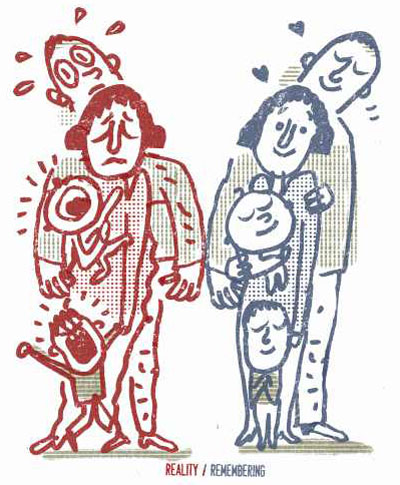The Parenting Paradox

In an evening dads’ class in St. Paul, a fellow named Paul Archambeau has the floor. He’s different from the other fathers in the room. While most are first-time dads — or have, say, a 3-year-old and a newborn — Paul has four children. His youngest is 3, his oldest is 11. “Now that Ben and Isaac are growing up,” he says, “I long for the days when they would sit at the counter and eat Cheerios with their hands. Norah” — his youngest — “can drive me crazy with some of the things she does. But I just know, a year or two or three from now, I’m going to say, ‘Man, that was fun.’” Another father, Chris, whose son is 17 months, looks surprised. “Why do you long for that?” he asks. “Because
I see being able to play catch …”
Says another: “Yeah, I fight the feeling off every day — I can’t wait until he’s older.”
“I don’t know,” Paul admits. “Maybe the finality to it, knowing I’m never going to get those years back. Or maybe because I’m forgetting how hard it was.”
The group debates this for a while.
“But here’s the thing,” says Paul. “I would bet that if someone did a study and asked, ‘OK, your kid’s 3, rank these aspects of your life in terms of enjoyment,’ and then, five years later, asked, ‘Tell me what your life was like when your kid was 3,’ you’d have totally different responses.”
With this simple observation, Paul has stumbled onto one of the biggest paradoxes in the research on human affect: We enshrine things in memory very differently from how we experience them in real time. The psychologist Daniel Kahneman has coined a couple of terms to make the distinction. He talks about the “experiencing self” versus the “remembering self.”
To read the entire article from this and other issues, subscribe to The Saturday Evening Post.